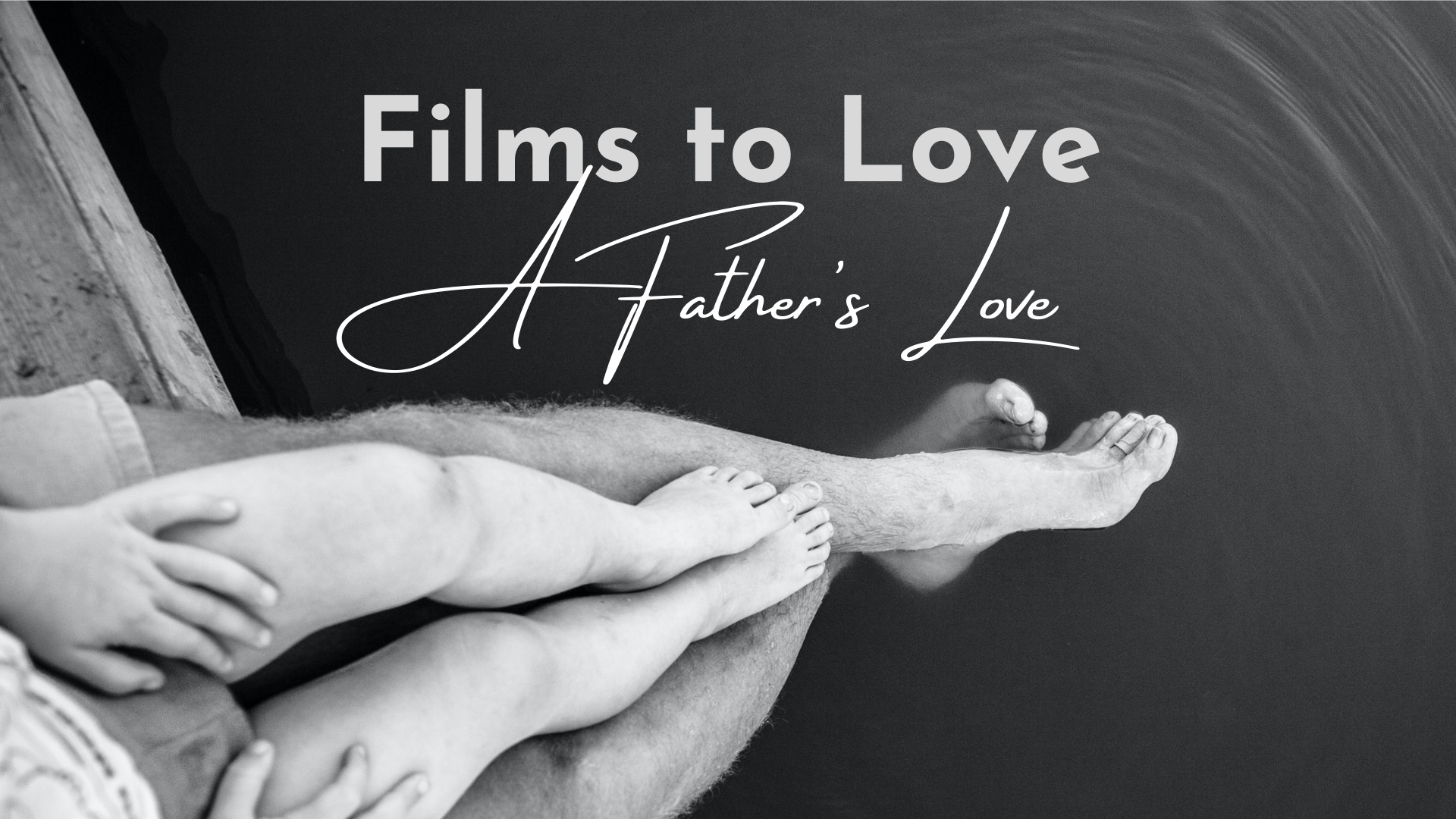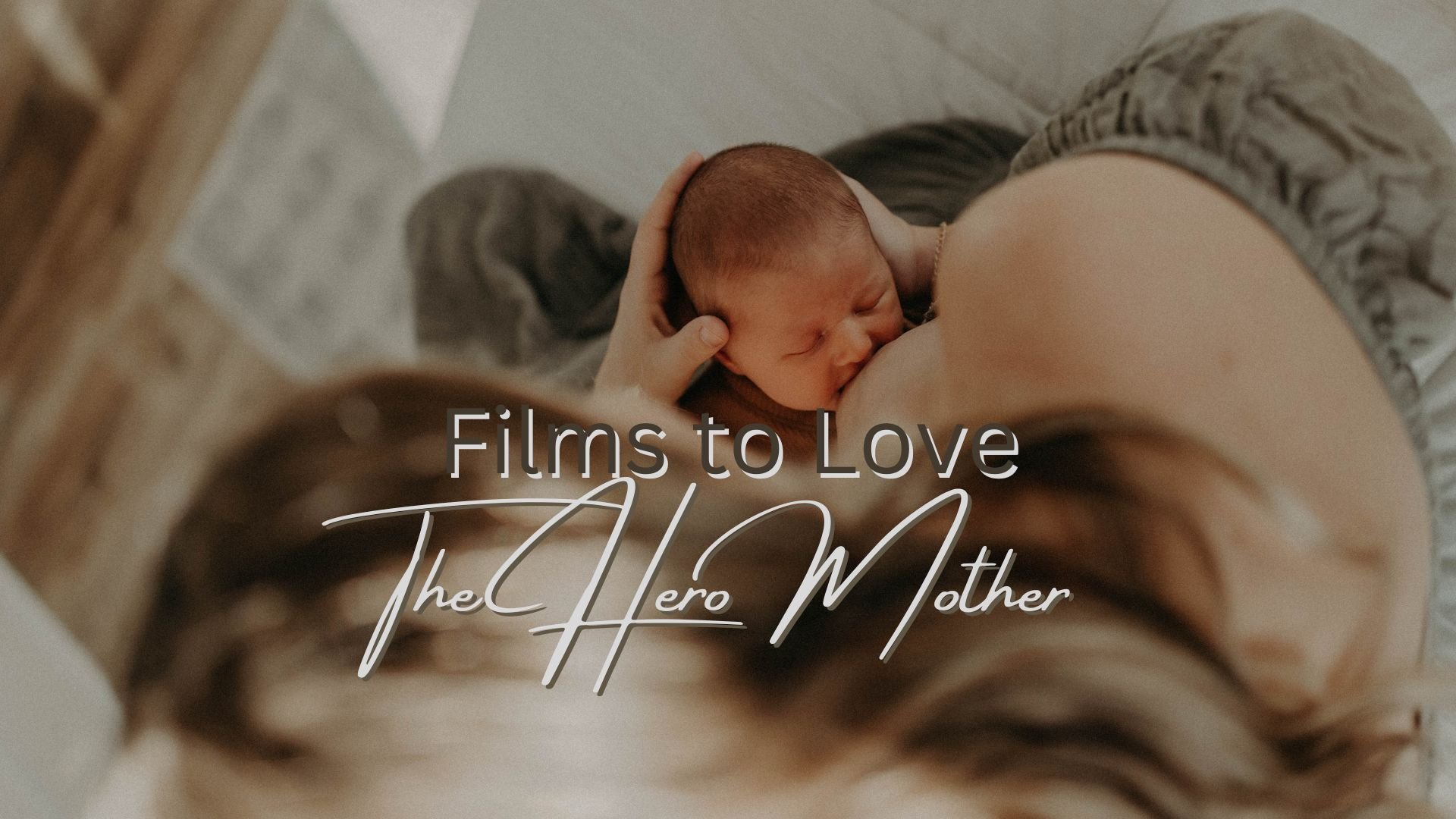Films to Love: A Father's Love
One of the most important things a father can teach his child is trust. This isn’t something that is taught in a traditional way. It’s not a concept that is put up on a board and defined and thereby translated into the next generation. Rather, it’s a lesson that can only be taught via example on the father’s part and experience on the child’s. This sort of trust is built, as Horatius said, brick by brick and it’s foundation is love. With these two elements of love and trust in place, a child is secure to face a daunting world with confidence because he or she knows that their father is their bulwark, their bastion of safety, their refuge.
I was fortunate enough to have this with my father while he walked the earth, and because of it, I did have the security and confidence to be who I am in a world that too often impresses conformity upon us. I knew he was there, at my back, being my champion at any given moment.
Perhaps that’s why it took me such a long time to watch the two movies I’m sharing with you today. They had long been family favorites, but when my father died, it was too hard for me to watch them. They both demonstrate these essential elements of trust and love in profound and poignant ways. These films celebrate the importance of fathers, one from the perspective of the father/son relationship and the other from the father/daughter. They also both possess a supernatural element that helps us delve further into the depth of what a father’s love is and why it is so important.
Frequency
Frequency has a uniquely cyclical plot line. It hinges off of a scientific phenomenon. The Northern Lights are visible over NYC, first in 1969 and again in 1999. These two time periods are when the story takes place. And while it may seem impossible, through imaginative use of String Theory, the writers find a way.
1999: John Sullivan is a NYPD detective with a failing relationship and a drinking problem. His discontent seems to hinge back to the death of his father in 1969, a thing which he never got over. He lives in the same house that he grew up in Bayside, Queens. When we first meet him, he’s not a happy man. His relationship with his girlfriend is falling apart; she’s leaving him though we get the impression she would love to have it any other way. When she’s gone, he cracks open a bottle of whiskey and drinks his problems away. His best friend since childhood, Gordo comes over with his son to see how John is doing and while there, Gordo’s boy discovers an old ham radio stored away in the closet under the stairs.
1969: Frank Sullivan, father of six year old John Sullivan, is a firefighter in the FDNY. When we meet him, we see his commitment to his work, his daring to go into perilous situations to save lives, and this first look frames our understanding of his character. When he rides his motorcycle to his home in Bayside, Queens, we further see how happy he is in his life with dancing with his wife and playing catch with his son. Frank is a great guy. Period. He loves his wife and he loves his son.
Frank has numerous hobbies, but on of them is chatting on his ham radio at night when his wife’s at work as a nurse at the hospital and his son is in bed.
Because of the oddity surrounding the frequencies affected by the Northern Lights, 1969 Frank and 1999 John cross paths via this ham radio. While neither of them believes the other at first, John is able to shout out a warning to his father about his imminent death. Although he can’t quite tell you why, Frank listens to the warning and rather than die in a fire, as he had, he lives. From here, the story truly unfolds as both men content with the consequences of this change in their lives.
Because the past impacts the future, father and son must rely on each other. They counsel, advise, encourage, and champion each other and through these handful of nightly conversations together, their lives are revolutionized.
The brilliance of this film is that it shows the impact of both the lack of a father as well as the presence of a father. We see John as an adult who had to navigate life without his father, and even though his dad died when he was six, the foundation of love and trust was still there enough that he when he was given the supernatural opportunity, he reach out with both hands, and seized it.
But, another beautiful aspect of Frequency is the fact that the trust goes both ways. Certainly John loves and trusts his father, but Frank, even though he’s never met his adult son, trusts and loves him enough to listen and act on his word as well. Perhaps this is why this movie touches me so deeply because when trust is built properly, it yields this same reward.
Meet Joe Black
Of the two movies, Meet Joe Black I avoided longer. That is because the father/daughter dynamic is exquisitely displayed and reminds very much of that which I had with my dad. Bill Parrish and his daughter, Susan, are the ideal. Susan trusts her father implicitly. Why? Because he has always been a source of unconditional love. From that love has flowed all manner of demonstration from encouragement, forgiveness, nurturing, direction, and respect.
A quick summarization of the film is as follows. Anthony Hopkins plays billionaire Bill Parrish. He’s awakened one morning hearing the word Yes followed by a pain in his chest. This phenomenon replays several times throughout his morning until it culminates in his NYC office. He grips his chest, falls to his knees, and hears a disembodied voice tell him that Yes is the answer to your question. The question, of course, is Am I going to die?
However, rather than die right there, Death seems to spare him. Later that evening, in his penthouse, a man shows up. In a masterfully written conversation, it is revealed that the man who is in Bill’s apartment is actually Death. He wants a holiday, as it were, and Bill provides the perfect person to orchestrate it. There are a few ground rules. Bill can’t tell anyone that his unexpected guest is Death, that’s where the unimaginative pseudonym Joe Black comes in. Furthermore, it behooves Bill to keep Joe Black entertained. I mean, once Joe loses interest, Bill kicks the bucket.
While this is the premise of the film, and can sound a little silly, Meet Joe Black offers a keen insight into many aspects and truths about life. Today I’m focusing on the relational dynamic between Bill and his daughter, Susan.
Our first introduction to Susan is when she is riding into New York City with her father in his helicopter. The man she is seeing romantically is her father’s right hand man in business, Drew. Her father questions her about the nature of their relationship, pressing her to find out if she is really happy. She answers his questions as best as she can and then she listens to him tell her what he wants for her. He’s not being overbearing or invasive; he’s being a concerned dad who wants his daughter to have the same earth shattering love that he had for her mother. And while Susan takes no action, as Bill isn’t telling her to do one thing or the other, she does listen to him and allow his words to root within her.
Later, when she encounters a man who truly turns her head with his charm and magnetism, she is further affected by him when he echoes her own father’s words from earlier that day. What her father said to her had resonance. Why? Because she trusts him.
Interestingly, the body that Death took so he can walk the earth is the same body that belonged to the man Susan met in the coffee shop. So, when her father brings him to dinner and introduces him, Susan is struck by myriad emotions. Why is Joe Black so different from earlier that day? Was he scoping out the territory before meeting with her father in order to work with him? Was he sincere when he spoke to her or is his standoffishness now the real man?
This is where we see the fruit from the trust Bill Parrish has built with his daughter. Susan confronts Joe Black, questions him directly about the disparity in his behavior from earlier that day to now, and is honest enough with him to let him know that when she met with him before, he truly impacted her in a not unwelcome way.
This scene is not a long one, but I appreciate her manner with him. Too often we see movies where the injuries party, which would be Susan, lashes out and berates the injurer, which would be Joe. Once her tirade is done, if it were written today, she would walk off vindicated. Not so here. She is poised. She maintains her self-possession well, knowing her mind. She doesn’t speak to him until she knows how to phrase particularly what has troubled her and why. When she receives no adequate response from him, then she tells him good night politely and leaves. I greatly respect her manner, and believe that is comes from her respect for her father.
The story unfolds on many levels, and, of course, the relationship between Joe and Susan does as well. Bill watches from the wings, as a loving father often does, with increasing concern. After all, he knows who Joe really is and he will not allow him to harm his daughter in anyway. Seeing his daughter begin to put more and more trust in Joe Black, seeing the burgeoning of love there, Bill is not happy.
As multiple storylines climax and crescendo, Bill confronts his daughter. He’s upset for numerous reasons, and right or wrong, Susan is the one who bares the brunt of his frustrations and concerns. Yet, even when Bill, from Susan’s perspective, unjustly loses his temper with her, she still trusts that he has her best interests in his heart.
This same trust Susan translates to Joe. There’s so much she doesn’t know about him, but there is something she does know. Love. She’s known it well and seen it all her life as displayed by her father for her mother as well as her father for her. So, when Joe acts shifty or refuses to reveal elemental aspects of himself, she doesn’t barrel ahead and demand, she trusts him enough to wait.
Meet Joe Black is not a short film; it runs nearly three hours. However, I appreciate the time. Like connoisseurs of fine wine, the creators of his movie uncorked it, poured the glass, and allowed the wine to breathe so that when we sat at the table to sup, our experience of flavor and taste and vintage was all the richer.
While neither of these films pretends to be Father’s Day movie, they are each homages to what a father’s love should be and how it will rightly impact the next generation.
Too often I have seen the role of father largely underplayed or even a figure of fun in our culture today. However, we each of us have known the importance of a dad. Whether because we have had his influence in our lives firsthand, or have lacked it, we’ve experiences its precious influence in our lives.
May you and your family have a Happy Father’s Day.




































